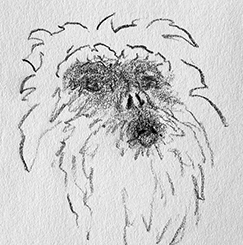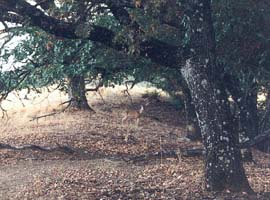Wynn
Walking to school one day in 1968, my boyfriend spun Wynn on her heels. Before he realized it, he had kissed her. “Oh! I thought it was Joanne!” he shrieked. That type of thing was not unusual; Wynn and I wore our light brown hair long and straight. Wynn lived with her aunt and uncle in my apartment house in Yonkers, New York. She was the daughter of a dead-beat artist father and an alcoholic, terminally ill mother, both strict Catholics who lived in San Diego. Every morning, I would go to Wynn’s house before school and find her sitting at the kitchen table with coffee, cigarettes, and cheap cosmetics. (She always smelled stale and stuffy.) Wynn wore teasingly short skirts, dark stockings, and heavy make-up: a “greaser.” We listened to hard-core rock ’n roll and felt wonderfully naughty. I remember a leather-clad, motorcycle-riding German boy in his 20s, who took Wynn out on a date. I later found out that he had been hitting her, but she still went back for more. “Well,” she said in his defense, “he’s a lot more exciting than those jerks in our high school!” Behind our apartment house was a grassy field known as the “aqueduct” — a place to relax and escape the watchful eyes of neighbors and parents. Wynn and I took long walks there, talking about our dreams and the future. |
She always seemed restless with Yonkers life and yearned for excitement. I remember her beautiful smile and whiskey-hearty laughter, and a faraway look in her eyes. Wynn moved to California after high school to be closer to her father and, as good friends do, we promised to keep in touch. The first letter I received from her was a brief note with literature about Jehovah’s Witnesses. The next letter was about Guru Maharaj Ji, the 13-year-old “perfect master” from India. She gave all of her money to his organization and followed him around the country. Wynn met a man, got married, and then “the Guru planted a seed in her” — a beautiful baby girl was born. About a year later, I visited Wynn in San Diego. We greeted each other warmly. She lived in a shabby, run-down house and served homemade soybean bread. Wynn’s baby, whom she called Ally, was beautiful and very thin. I met her husband, who was a surfer and a chicken de-beaker. (Yes, there are people who actually get paid to remove the beaks of chickens.) I left their house feeling oddly disappointed and empty. Later that year, Wynn wrote and said that she gave Ally up for adoption because she felt that she was an unfit mother. I’m not sure what happened to her marriage. My heart sank. I have not heard from or seen Wynn again. I often think of her, and wonder if she has found the happiness and excitement so vivid in her youthful dreams. Her wonderful laugh lingers in my mind. Her beautiful daughter may never hear it. © 2012 Joanne Shwed Photo courtesy of Thomas A. Ekkens |


















































